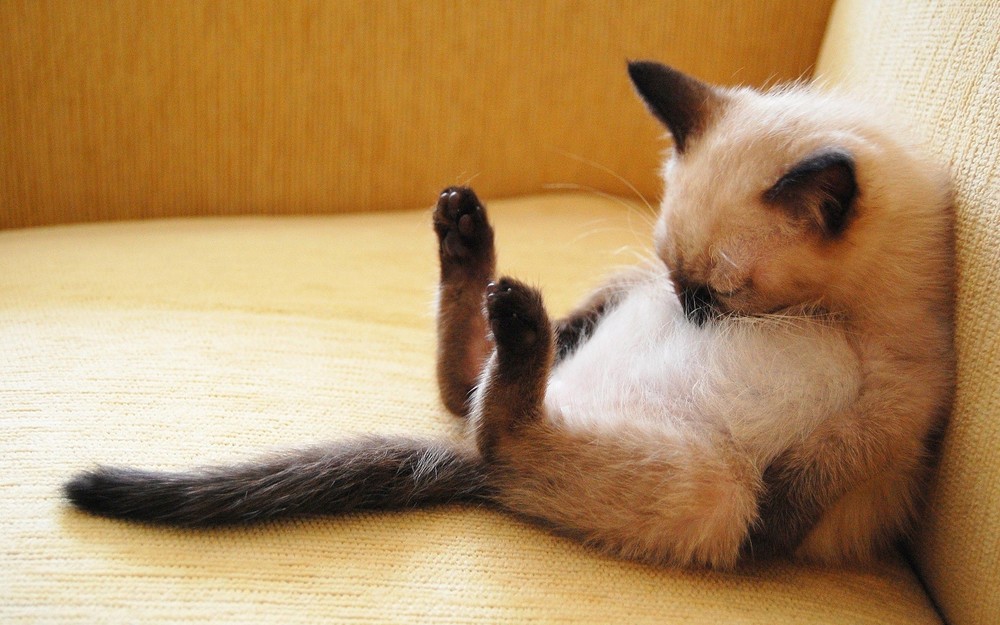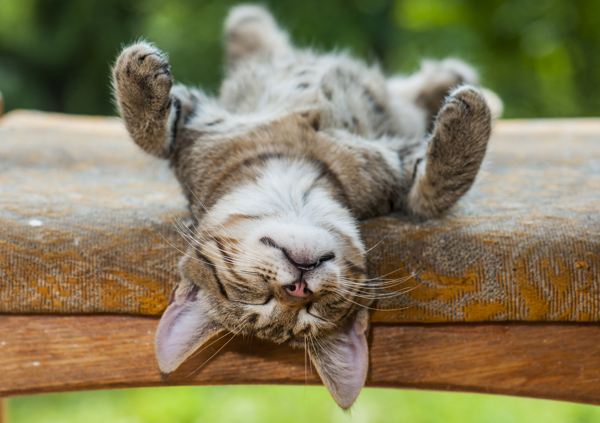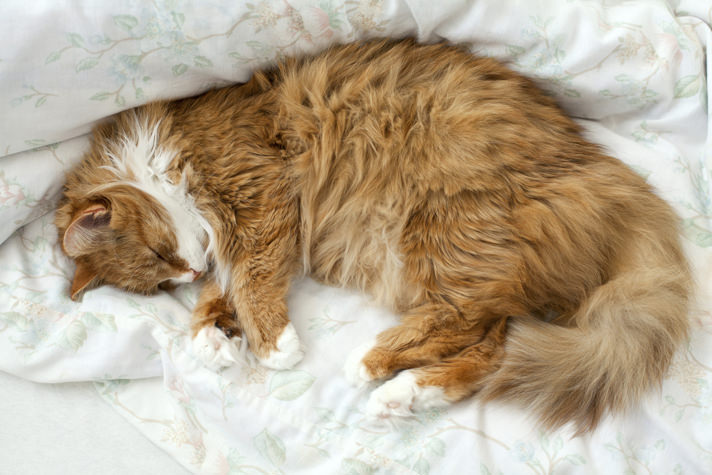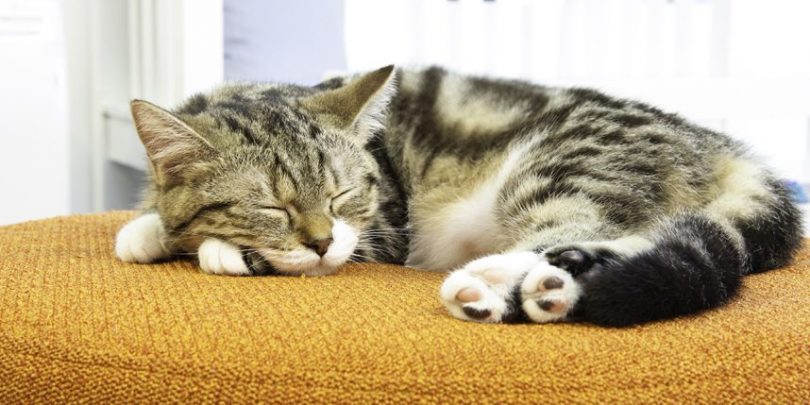When human beings snore we know that there is some problem with their health and this can be harmful to their rest, not to mention the effects it has on the people around. Some of our pets might do this too, and cat snoring can be something that we worry about. Let us find out how this problem appears and what you need to know about it.
Snoring occurs if the upper part of the airways, which is comprised of the nose, back of the mouth and throat, vibrates audibly when breathing. This is a condition that comes up more often if the tissues of the upper airways are relaxed during sleep. This means that short-nosed breeds such as Persians have a higher tendency for snoring.
Harmless Situations
Most cats love to sleep and they go through the same sleep cycles we do. The rapid eye movement phase manifests in cats through twitching whiskers, you may also see the facial muscles in action and their feet might begin to move. The deeper, non-REM sleep is the one in which they are completely relaxed and this is the time when snoring is most frequent.
If the cat only snores in some parts of their sleep then it is probably in this stage and you should consider it normal. It’s not as if you can change the cat’s airways so if you own a brachycephalic (cat with a flatter face) then the shortened nasal passages will make more noise.
Another cause for snoring might be simply because the cat has fallen asleep in a weird position and that causes the snore. Overweight cats also have a higher tendency to snore and this is something you can improve since obesity can cause many other more serious problems for your pet.

Signs of Illness
By itself, snoring can be caused by the things we mentioned above, but there may be other signs which indicate some health problems with your pet. For example, if the same snoring sounds can be heard even when your cat is awake then there may be a more serious problem.
The discharge of the eyes or nose combined with sneezing or seeing sores on the pet’s nose can mean that these are all symptoms of a respiratory infection and the mucus is hindering the nasal passages. If you see the cat snorting or coughing, these are also probably signs of an illness.
The lack of an appetite and an overall lethargic state can mean that they suffer from some internal problems and even the fact that the cat breathes with the mouth open is something that should cause concern as this isn’t normal for cats. Other signs of respiratory problems can be if you see your cat extending their neck and breathing rapidly and for all of these you should see a veterinarian to prevent more dangerous symptoms.
Cats don’t like to show signs of illness and that is why many owners discover problems only when it is very late. A change in their sleeping, eating or social behavior should pose questions to a caring parent and even small differences in their breathing can mean a more serious threat.

Medical Issues
The signs and behavior we described above can come from a large variety of conditions and we mentioned an upper respiratory infection but things such as polyps or tumors in the nasal passages can also be a cause.
There is such as thing as feline asthma and it will lead to the cat’s lung passages swelling. Also heart diseases can cause symptoms like the ones we talked about and even severe dental disease can be a cause of snoring!
You should keep an eye out for any swollen areas of the face as this can indicate a tooth root abscess and that can be very painful. It will hinder breathing and can cause snoring but that is certainly the least of a cat’s worry at that time. These problems cause your pet a lot of suffering and they require a medical intervention.
One last thing to mention is the possibility that the cat has a foreign object in the back of the mouth or nose and this can make the cat more agitated, start coughing or begin to snore. Grass blades or parts of other plants can get stuck there and this might get their sinuses infected.

Snoring Treatments
The cure for snoring is highly dependent on its source and that is the place you should start with. Determining the problem will tell you how to deal with it, or at least what can be done to alleviate it. The best place to start is by going to the veterinarian and having the pet examined for any possible illness.
Even if there are no problems, the vet might give you good advice on what to do about the snore. If polyps, foreign objects or a tumor are the cause then this is something else that the vet can take care of and thus this is one additional reason to pay them a visit.
If your cat started gaining some weight that can cause the snoring and, just as with us, this is a problem that needs to be controlled. An overweight cat has a shorter lifespan and will have a higher risk of developing some serious conditions so a change of diet as well as more activity should do a lot of good for the well-being of your furry friend.
The presence of dry air can increase the chances for the cat to snore so check if the area where they usually sleep is dry. In this case a humidifier should solve the problem and that is a very quick fix.
If the cat’s condition is genetic then you should just try to ensure they have a happy life and that they have a good appetite as there isn’t too much you can do about the snore.
Make sure they have a comfortable position, check the diet, avoid allergies, change their bed more often and by doing all of these you should at least see an improvement even if the snoring won’t stop completely.








Leave a Comment